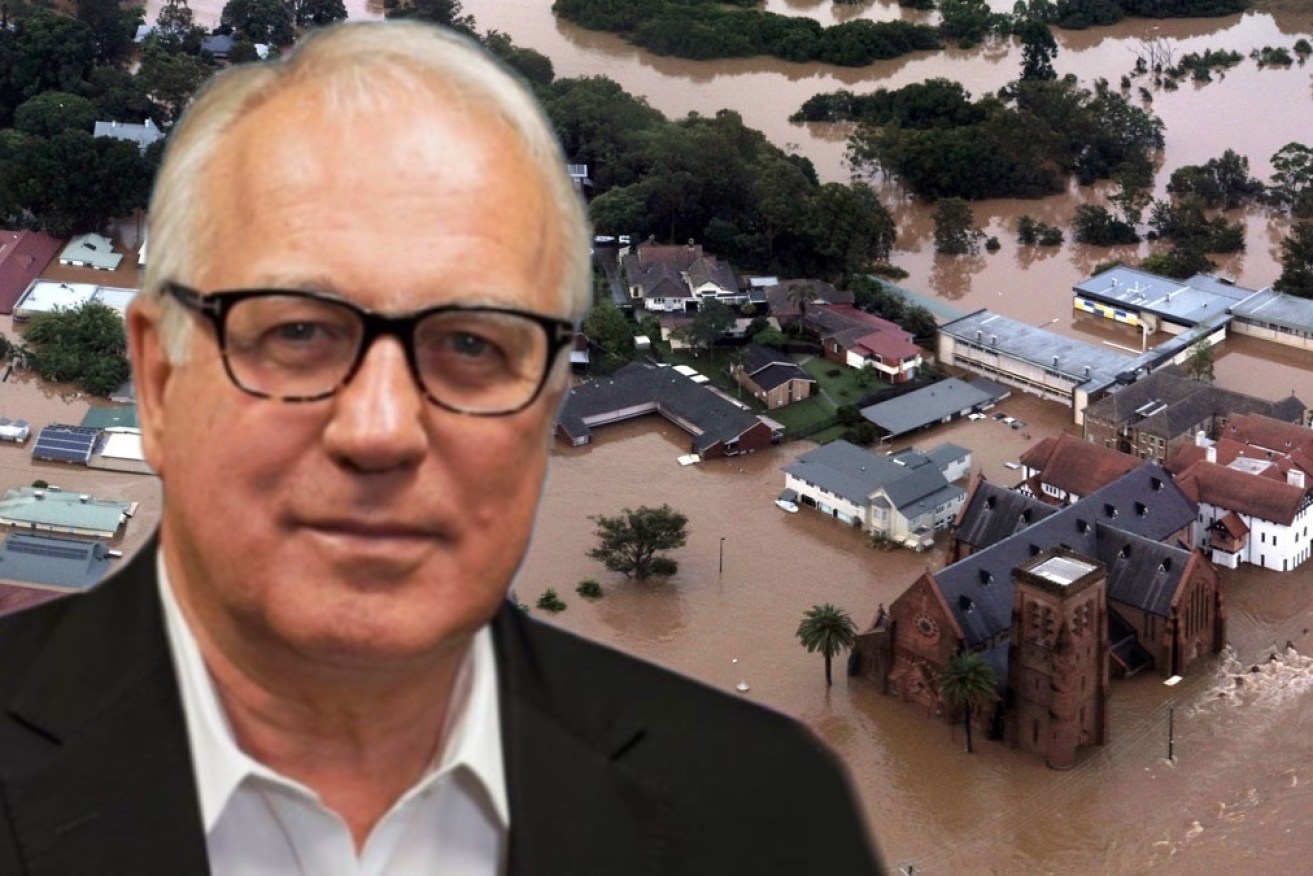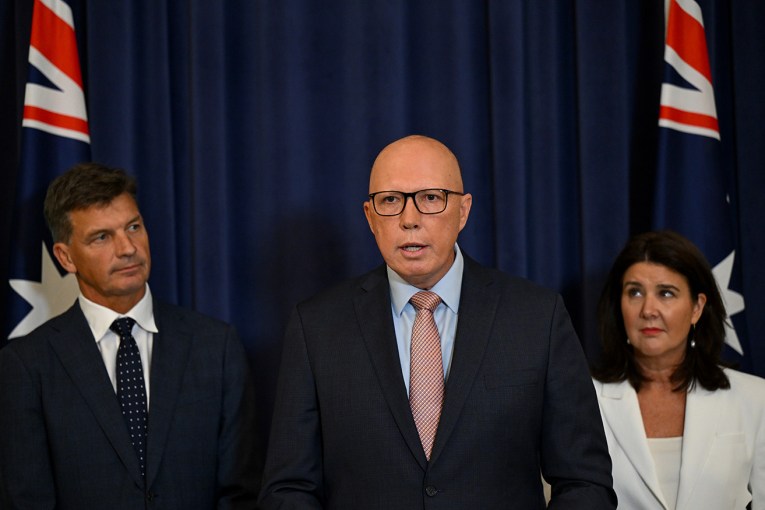Alan Kohler: Reserve Bank the best bet to save humanity from climate crisis


The Albanese government has not made significant changes, writes Alan Kohler.
Here’s a crazy idea: Give the job of dealing with climate change to the Reserve Bank.
It’s crazy because the Reserve Bank is up to its neck in the one job it has, which is fiddling with interest rates to incite us to borrow and then once we’ve done that, and we’re out on the debt limb, saw it off. Right now, it’s in sawing-off mode.
But here’s why it’s not so crazy: First, it’s the only government body that’s entirely independent of politics and the need to be popular, and it’s clear that political democracy is failing to deal with climate change, and second, the Reserve Bank can create money.
Terrifying political failure
The abject failure of politics around the world to even seriously reduce the burning of fossil fuels, let alone stop it, is terrifying.
A third of Pakistan is under water and Europe is drought-stricken with just 1.1 degrees of global warming from the pre-industrial age. Scientists tell us that current policies will lead to 2 to 3 degrees of warming, which would make large parts of the planet uninhabitable and cause mass extinctions, possibly of human beings.
Even the 1.5 degrees that the world is aiming for will mean extreme weather is much worse than it is now.
In any case, net zero by 2050 won’t be enough to achieve that, especially since “net” refers to often dodgy offset schemes that pretend to offset emissions for the sole purpose of maintaining the profits of emitters.

The world faces a grim future with more extreme weather a certainty. Photo: Getty
Government dashes hopes
Many Australians thought Anthony Albanese and his government would bring new and vigorous action on climate policy, in contrast to the cynical opportunists in the Coalition, but those hopes have been dashed.
The clue was in the title of its climate policy, launched last year. The first sentence of the press release, “Powering Australia” is: “Creating jobs, cutting power bills and reducing emissions by boosting renewable energy are at the centre of Labor’s Powering Australia plan.”
It’s a job creation, electricity bill-cutting election policy that might also reduce emissions as a side benefit; the 43 per cent reduction by 2030 that it proposes is nowhere near enough.
Business as usual
The government confirmed it’s still not really worried over the past few days.
Immigration is to be expanded from 160,000 to 195,000 a year, a political decision to appease business. This will significantly increase Australia’s emissions, and make net zero by 2050 harder to achieve. It will also increase global emissions because most of those people will come from countries with lower emissions than Australia.
The reason migrants come here, or go to Europe or the United States, is to have a better life, which means generating more carbon dioxide, by driving and flying, consuming stuff that has to be delivered, eating more meat, and heating their houses.
And on Monday the Prime Minister told the Australian minerals industry: “As we work with other nations to reduce emissions globally, we will continue to be a reliable provider of energy.” Coal and gas, that is.
Coal price boom
And why not? This year’s coal price boom has produced a record current account surplus and much more tax revenue than previously budgeted. Are we really going to stop exporting coal and gas? Of course not. The government will no doubt approve more carbon export licences, over the Greens’ metaphorical dead bodies.
But this is why there urgently needs to be effort and money put into what’s called “adaptation” – that is, dealing with the effects of global warming – as well as trying to stop it, because it isn’t going to be stopped.
The Department of Climate Change, Energy, the Environment and Water has within it something called the National Adaptation Policy Office, which has the task of overseeing implementation of the National Climate Resilience and Adaptation Strategy.
These things were created last year by the previous government but didn’t rate a mention in this year’s budget, so it’s a fair bet that it’s a hastily constructed movie set.
And we know what Treasurer Jim Chalmers’ response would be to a suggestion that the National Climate Resilience and Adaptation Strategy be properly resourced: “We’ve inherited a trillion dollars in debt!”
Insurers raise alarm
Meanwhile, this morning (Thursday) the Insurance Council of Australia released its second Catastrophe Resilience Report.
In it, the ICA said: “At present, no region in Australia is uninsurable, however some regions may become increasingly difficult to insure as extreme weather risks grow. For insurers to continue to provide affordable coverage action is required to strengthen the resilience of our homes, businesses, and communities, shift our approach to what we build and where we build it …”
It may be true that no region has been declared uninsurable yet, but parts of the country, like Lismore or along the Brisbane River, are effectively uninsurable because the premiums are unaffordable.
“Action is required,” says the ICA. What action? It doesn’t say, but presumably, we’re talking about moving families to higher ground, building levees, not issuing building permits on flood plains, reinforcing the coast, and clearing bush.
RBA to the rescue
Given the floods and bushfires that have already happened and are going to get worse before long, and the resulting problem that large parts of the country will have with insurance, a whole new agency should be set up with a big budget to help the country prepare for the effects of climate change and perhaps provide last resort insurance.
But there’s no money for that because there’s too much debt already, and too many more immediate priorities ahead of preventing the extinction of humanity.
None of it will be cheap, and none of it is what you’d call free market capitalism.
But capitalism and political democracy aren’t good at expensive emergencies, although COVID-19 was the exception to that rule, thanks to the double whammy of monetary and fiscal policies.
This is why giving the problem of climate change to an undemocratic socialist organisation like the Reserve Bank is not such a crazy idea: The only way to generate enough money to both fund the transition to renewable energy and to climate change-proof Australia is to print it, and only the Reserve Bank can do that, while forcing unpleasant solutions upon us.
It saved the economy from COVID.
Next challenge: Save the economy from climate change.
Alan Kohler writes twice a week for The New Daily. He is also editor in chief of Eureka Report and finance presenter on ABC News








